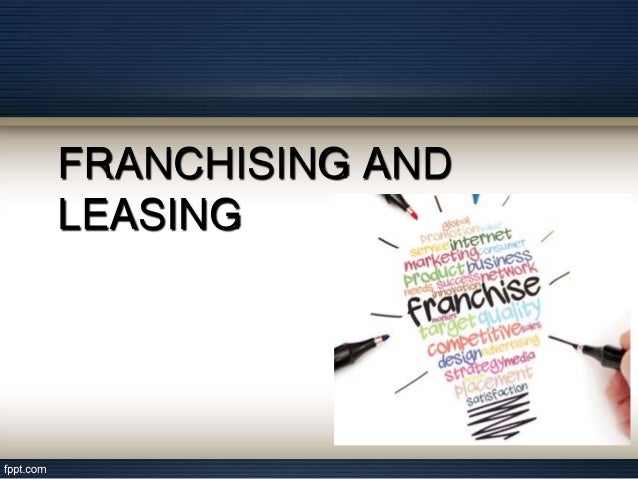AVENUES OF ACQUIRING A BUSINESS 18/06

AVENUES OF ACQUIRING A BUSINESS
3. Leasing a business
“A lease is a contract outlining the terms under which one party agrees to rent property (lessee) owned by another party (lessor). It guarantees the lessee, also known as the tenant, use of an asset and guarantees the lessor, the property owner or landlord, regular payments for a specified period in exchange.”
The business is run by the lessee and given back to the lessor (the owner of the business) when the contract expires.
Issues to be considered:
· Leasing enables an entrepreneur to start a business without a large capital layout.
· Leasing can be defined as legal agreement that gives the business (lessee) the right to use an asset owned by someone else (the lessor) for a specific period of time in return for regular payments.
· It is possible to lease most of the movable assets a business needs, including vehicles, office furniture, store fixtures, computers and manufacturing equipment.
There are two main types of movable asset leases:
· True leases – The lessee acquires no rights to the property, other than its use, the lessor remains the owner of the leased property and the lessee’s rental payments do not give him/her ownership of the item.
· Financial leases - allow the lessee to purchase the asset at the end of the leave term.
Advantages:
· Cheaper than buying- the business gains use of the asset with no initial expenditure
· No capital outlay
· Experience running the business
· Could have an opportunity to buy the business
· Less risk- The business does not carry the risk of expensive equipment becoming obsolete. Leased items are returned to the lessee at the end of the term of the lease.
· The business can acquire the latest technology without having to invest large amounts of capital.
· For the lessee the lease payments are tax deductible.
· Leasing improves the cash flow of the business.
· Leasing is regarded as an expense to the lessee and therefore is not regarded as debt
Disadvantages:
· The total of the lease payments may be more than the original purchase price of the leased items.
· The lessee is bound by the lease contract even when the business may not need the items any longer.
· When the owner wants to sell the business the lease will have to be taken over by the buyer of the business
4. Franchising:
“A franchise is a type of license that a party (franchisee) acquires to allow them to have access to a business's (franchisor) proprietary knowledge, processes, and trademarks in order to allow the party to sell a product or provide a service under the business's name. In exchange for gaining the franchise, the franchisee usually pays the franchisor an initial start-up and annual licensing fees.” Examples include McDonalds, Burger King, and Pizza Hut.
· A franchise Agreement is drawn up when a franchise is sold and it is a legally binding document.
· By selling a business with a known name and set of procedures and operations, the franchisor is able to control the quality of the goods or services delivered.
· The Franchise Association of South Africa (FASA) exists to support and advise franchise owners.
Contractual obligations and legalities
· The franchisor and franchisee will enter into a formal agreement which stipulates the roles, rights and responsibilities of both parties.
· The agreement will also specify the following payments: the initial fee; monthly management fee; royalties on turnover; fees for machinery and equipment; and fees for advertising.
“A royalty is a payment made by one party (the licensee or franchisee) to another that owns a particular asset (the licensor or franchisor), for the right to ongoing use of that asset.”
The advantages of franchising:
· It is an established brand with a tested business/product with a proven track record and a successful business plan
· Expert guidance is given during all operation, training and management phases
· Staff are trained and existing training modules are readily available
· Personal ownership is guaranteed
· Risk tends to be lower
· Market research has already been done and is ongoing by the Franchisor
· Franchisees benefit from National advertising, promotions and campaigns
· Financial assistance, if required
· Management assistance
· Quick start up
· Banks are more likely to lend money to buy a franchise with a good reputation
· Relationships with suppliers have already been established
The disadvantages of franchising:
· The costs may be higher than expected
· The business will continue paying royalties and may have to agree to buy products from the franchisor.
· There may be restrictions in the franchise agreement on the business may be operated.
· The franchisor might go out of business.
· Other franchisees could give the brand a bad reputation.
· It may be difficult to sell the business together with the franchise.
· A percentage of sales usually are shared with the franchisor